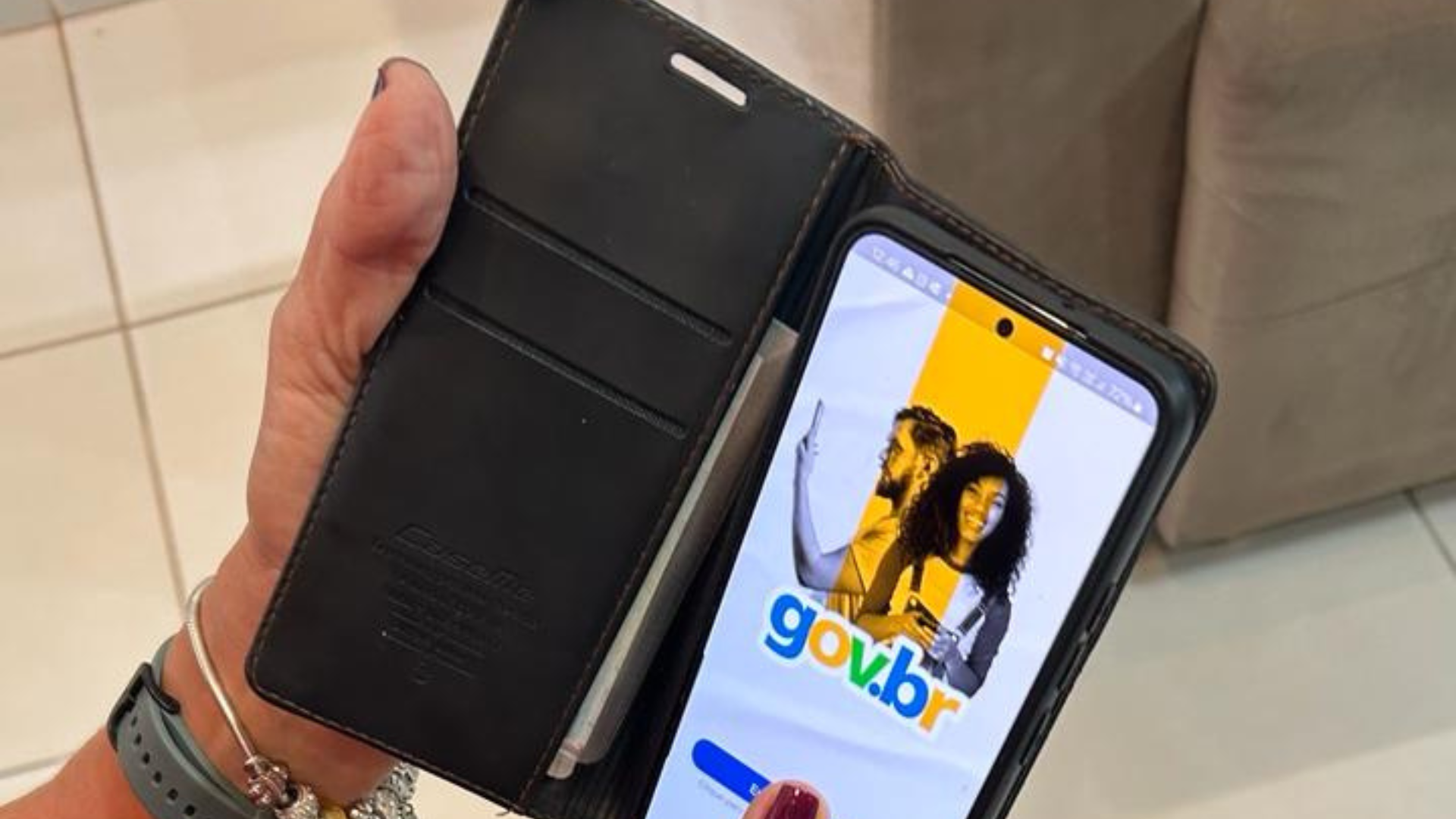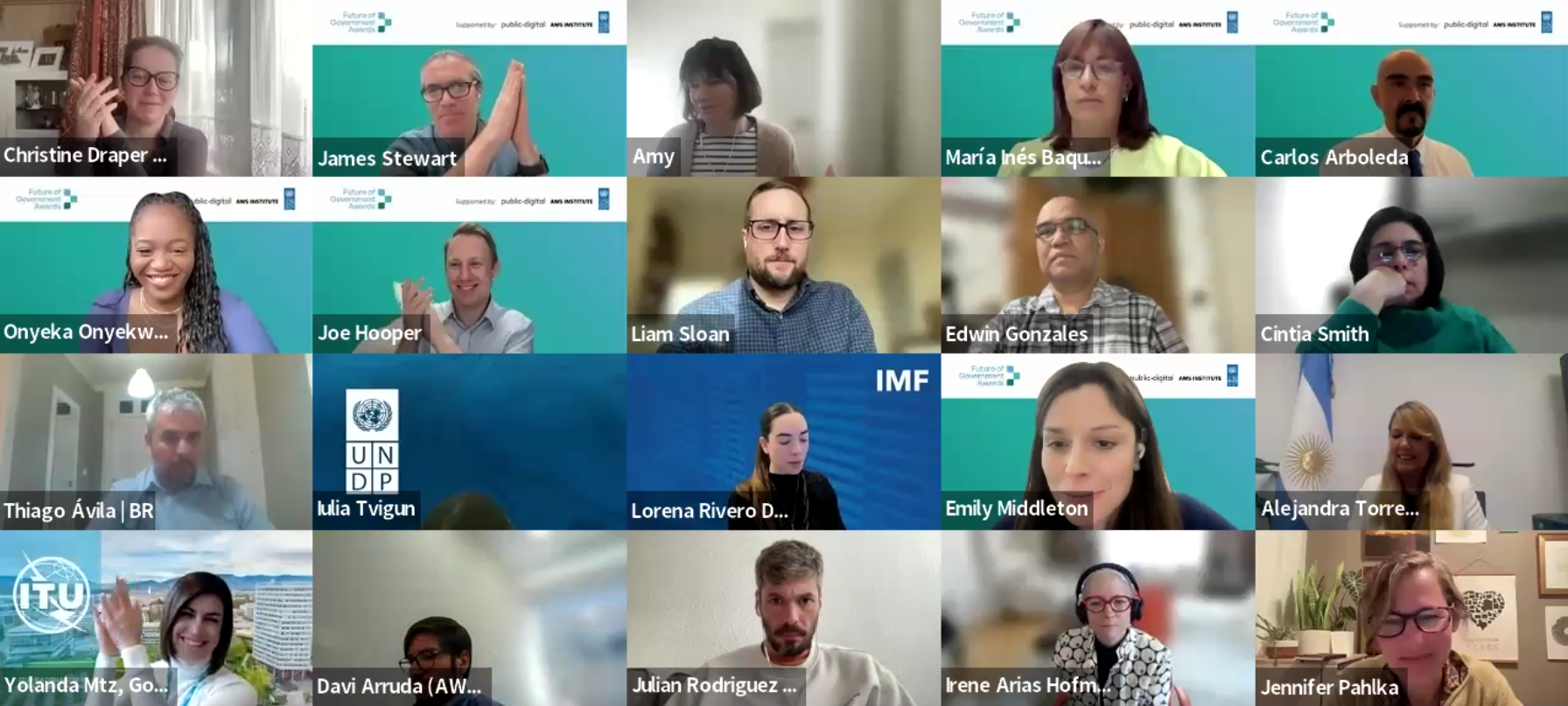Celebrating the future of digital government
February 16, 2024

2023 was undoubtedly the year of AI, and ChatGPT in particular. But this highlighted how sometimes attention is focused on tools and technologies, and less so on the people behind the scenes building the products and services that make our lives better and easier. The hard-working digital talent in governments around the world.
This was the inspiration behind UNDP, the AWS Institute, and Public Digital launching the Future of Government Awards – to champion and celebrate the often-unsung digital talents working in our public sectors. Because celebration is a crucial part of achieving even bigger wins. It also is an opportunity to showcase and learn from what is working elsewhere. This latest edition of the Future of Government Awards received more than 330 entries from over 60 countries. Double the total number of submissions from the previous year.
Celebrating global digital efforts
The Future of Government Awards features five categories of awards. The Awards also have a particular focus on scale – aiming to identify the ideas, behaviours, and impact that can be explored in other settings. A key enabler of this scale is open source. By making the underlying code or other components of a solution freely available we can accelerate digital transformation through reducing development time and cost. The benefits of this are demonstrated by the winner of the Open Source Creation Award: the Bahmni hospital system supporting healthcare providers in lower-income countries. Its openness by design has seen it rolled out to more than 50 countries around the world.
Another exciting aspect of open source is adapting solutions to meet the needs of a different context. This was the inspiration behind our Open Source Adaptation Award – we wanted to champion the re-use of open source solutions, as often much of this re-purposing is happening quietly. The Philippine National Identity system, PhilSys, won this category. More than 83 million Filipinos have registered for PhilSys – with the system adapted from the MOSIP digital public good that has been deployed in 10 other countries. Adapting an existing solution has likely played an important role in the Philippines reaching this important scale.
The final three Awards – to celebrate Digital Advocates, Digital Leaders, and a lifetime of digital achievement – aim to draw attention to the hard-fought, often quietly pursued, and always dedicated digital efforts happening every day in governments around the world.
The winners of the Digital Advocates Award were the Digital Identity Directorate in the Government of Brazil’s Ministry of Management and Innovation in Public Services. The award recognises their efforts to catalyse a truly national digital ecosystem. Brazil’s national digital identity is used by citizens 250 million times each month – and provides access to more than 4,000 services. This is a journey that has been echoed by their civil servant counterparts in India, who have been supported and empowered by this year’s Digital Leader of the Year, Abhishek Singh. Abhishek has driven and led digital transformation at a significant scale. Under his leadership, India leveraged digital tools to deliver one of the world’s largest vaccine programmes during the COVID-19 pandemic, and the country is rapidly engaging with AI and other emerging technologies. Abhishek has also overseen the development of an online learning platform that offers more than 800 courses to upskill civil servants.
The emerging technology explorations of Abhishek and many other digital leaders highlight the importance of ensuring that the public sector can access the right talent. This was the inspiration for the Code for America initiative launched by Jennifer Pahlka in 2010. Through a one-year fellowship, developers and technologists brought their skills into local and national government. Since then - via the White House, the United States Digital Response to COVID-19, and returning to modernise local government infrastructure – Jennifer has built a remarkable resumé of leveraging digital for the public good. She is the very worthy recipient of this year’s Lifetime Achievement Award.
Digital government isn’t zero-sum
In an era of digital unicorns and international benchmarks, digital can sometimes focus more on competition than collaboration. But the Future of Government Awards is about identifying and championing digital efforts – recognising that when one government does well in digital, other governments can do well too. Digital transformation is not a zero-sum game, but an opportunity for connecting, sharing, and collaborating.
Part of this championing is to foster a culture of celebration within our digital public sectors. Encouraging individuals and teams to reflect on their successes can spur them onto even bigger achievements – an important aspect when local and national governments are on the frontlines in an era of increasing complexity and uncertainty. It is hard and important work. But celebrating these efforts and successes can lead to better digital solutions, better governments, and a better world.

The second Future of Government Awards ceremony held online on 15 February 2024
Digital advocates of the year
Winner: Digital Identity Directorate Team – Brazil
Highly commended:
- Envision, Aspire to Innovate (a2i) – Dhaka, Bangladesh
- Tekwill in Every School Programme – Chisinau, Republic of Moldova
Open source creation
Winner: Bahmni – Bangalore, India
Highly commended:
- OpenSPP Social Protection Platform – Cebu City, Philippines
- Hyperledger Aries Cloud Agent Python (ACA-Py) – British Columbia, Canada
Open source adaptation
Winner: PhilSys – Quezon City, Philippines (adaptation of Modular Open Source Identity Platform (MOSIP))
Highly commended:
- Smart Data Ukimet – Astana, Kazakhstan (adaptation of Apache Superset, Apache Airflow, and Knime)
- Trembita – Ukraine (adaptation of X-Road)
Leadership award
Winner: Abhishek Singh – New Delhi, India
Highly commended:
- Tamara Duisenova – Deputy Prime Minister, Kazakhstan
- Jamila Akaaga Ade – Head of Cyber Crime Unit, Federal Ministry of Justice, Nigeria
Lifetime achievement award
Winner: Jennifer Pahlka – United States

 Locations
Locations
